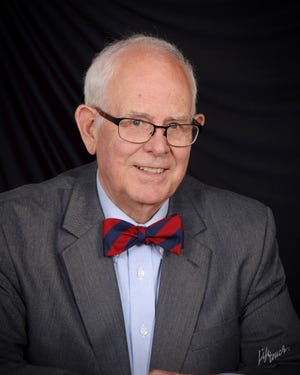
“Looking at the state of American civic life at this time, I conclude that higher education is doing everything in its power to prepare graduates for a democratic republic,” UNC President Peter Hans said at the January UNC Board of Governors meeting. It's difficult,” he said. His comments appear to have been inspired, in part, by legislation proposed in last year's General Assembly.
The House of Representatives passed the REACH Act (“Restoring College Education on America's Constitutional Heritage”). The Republican caucus' belief was that college instructors teach history/civics by putting a personal political/philosophical (WOKE) perspective on the subject. Ironically, their bill did exactly the same thing – definitely informed their leanings. This immediately drew criticism from many faculty members, who saw it as a real threat to academic freedom, and it was never considered by the Senate.
A committee of UNC System leaders and faculty was established to propose a more acceptable version. UNC-G professor Wade Maki led the effort. “What's really important for the public to know is that the faculty was not against learning civics. We really like the idea of students having a college-level civics experience. I don't disagree with that. I have some big concerns about the process that we use.”
Their new proposal, which the Board of Regents considered, would include courses in the following documents as part of UNC's graduation requirements: Declaration of independence. A representative selection of the Federalist Papers works of Alexander Hamilton, John Jay, and James Madison. President Lincoln's Gettysburg Address. Lincoln's Emancipation Proclamation. and Martin Luther King Jr.'s Letter from Birmingham Jail.
However, this issue has sparked a major debate over public education. According to the National Assessment of Educational Progress (NAEP), or “National Report Card,” only 13 percent of eighth grade students are considered proficient in U.S. history, and only 22 percent are considered proficient in civics. This is a decrease of 5 points from 2018. Political institutions, democratic principles, and participation in government fell by two points, the first decline in history.
“These are two areas that are very important not only to the future success of individual students, but also to the success of society as a whole,” said 12th grader Patrick Kelly.th grade level government teacher who led the NAEP steering committee.
The Fordham Institute gave North Carolina a “D” on its civics criteria and an “F” on its American history criteria. The conservative think tank says the current standards are inadequate and should be rewritten, sparking a debate over how critical race theory and racism should be taught.
I remember discussions about how North Carolina could be better. One major obstacle was that there were already too many subjects and credits required to graduate from high school, making it difficult to add more to the traditional four years of high school. A choice was needed. Unfortunately, social studies was sacrificed.
The State Board of Education has developed new standards for how social studies will be taught to high school students. This removed separate course requirements for civics courses and some traditional history courses and added new criteria for graduation.
Students must earn four credits in social studies to graduate from high school. Students can choose from a list of cafeteria-like options, including:
1. Founding Principles Course: American History: Founding Principles, Civics and Economics, or Founding Principles of the United States and North Carolina: Civic Literacy
2. American History Course: American History I, American History II, or American History
3. World history
4. Economy and personal finance
(Option 4 was added because of evidence that high school graduates did not know how to manage money and credit responsibly.)
The bottom line is that North Carolina high schools are graduating young people who may be able to read, write, and do math, but lack a basic understanding of their state's and national systems of government and their role as citizens within them. .
Consistent evidence is that our state has lower test scores than many other states and ranks far below other countries in providing the education young people need to lead productive lives. is shown.cent century.
But instead of sacrificing instruction, it may be time to start asking more fundamental questions.
You probably won't be able to cram more into a student's day/year as it is currently structured. Why not increase the number of class hours per day? Alternatively, you may need to consider the possibility of extending the school year beyond her traditional 180 days. There's nothing magical about the number 180. Originally, the school year was about 4 months long for him. Young people were needed to harvest the crops. That's not true anymore.
Can we at least discuss these ideas honestly?
Then we can debate whether history and civics can be taught without partisan politics.
Tom Campbell is a Hall of Fame broadcaster and columnist who has covered public policy issues in North Carolina since 1965. His weekly 30-hour television show, NC SPIN, aired for his 22 and a half years. Please contact tomcamp@carolinabroadcasting.com.


